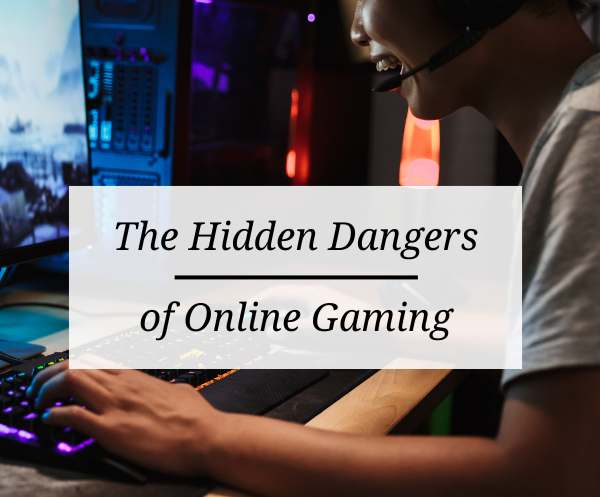All computer systems are vulnerable to attack by hackers or cybercriminals, but the reality is that they generally attack those sites that are vulnerable or have a low level of security. In the case of company websites, a security breach will not only put your company and customer data at risk, it can also affect your brand’s SEO strategies.
Organic positioning is one of the most efficient and used techniques to make your brand visible in the Google search engine, which receives around 70% of search clicks. Therefore, if your site has good rankings and is among the five sites that appear in the search results page, it can easily gain popularity and success; which, combined with other digital marketing strategies, can translate into a greater number of sales, and outperform your competition.
Cybersecurity for your website
Cybersecurity aims to protect networks, devices and data from hackers or cybercriminals to ensure the confidentiality and availability of the information stored on the server. In this way, only intended or authorized users will be able to access the site and make modifications.
In recent years, Google has given more and more prominence to website security, especially when it comes to online shops or sites that handle sensitive user data (like credit card details). The better the ranking of a business site by major search engines, the greater the chances that visitors will discover your products and services. But with increasing popularity, the risk of an attack also increases.
If a company suffers a security vulnerability on its website, not only will search engine rankings be affected, customers will start to distrust and not want to visit it again. For this reason, it is important that SEO campaigns invest in cybersecurity also.
If your website is attacked by a third party, the attack can have a significant impact in other areas, such as:
- Website traffic can be redirected to third party servers.
- Error 50X, an internal server error may occur.
- Massive 404 errors, content not found across the entire website.
- Websites can be infected with malicious code, which can spread the infection to all visitors.
- Websites can be infected by phishing attacks to mislead and scam visitors.
How does a security breach on your website affect SEO?
Google penalties and blacklists
If your website is the victim of a cyber attack, the search engine will consider it as dangerous and risky for users. This will affect more than the reputation of your company, it will also affect customers and search performance of the website and domain name.
Major search engines like Google or Bing may impose SEO penalties on websites that are compromised in the long-term. This is because they want to protect users and their data. The integrity of the website can be maintained by taking appropriate web security measures, such as protection with SSL certificates (the famous green padlock).
Search engines can also blacklist the website, which will prevent it from appearing in search engines, not being able to advertise in Ads, appearing in Google Business or using other company services.
Inactivity time
It doesn’t matter if you manage a small business or a multinational company, having a website available 24/7 is necessary to have a solid presence in today’s market. For every hour your website is down, it can lose tens or hundreds of visitors, which in the long run can mean lost sales. If you have a functional site, which loads fast and with the best user experience, it means you have a vibrant business.
Once your site suffers a cyber attack, it can be down for hours, days, or months. In addition, a prolonged downtime can affect the digital marketing strategy of your company: it will begin to lose its rankings on the SERPs (Search Engine Result Pages), which will reduce the number of visits and possible conversions or sales.
Content changes
One of the most common cyberattacks, in addition to stealing data, is changing the content or information on your website. Hackers will use various tactics to modify website content, such as creating new covert pages, adding outbound links, displaying different content to search engines, among other things that can affect the organic rankings of your site. These modifications will damage your reputation, both with the search engine and with end-users.
Site reviews
Website reviews on Google My Business, Google Maps and other directories are increasingly weighing in on users’ decision and are an essential ranking factor for search engines. Naturally, Google prefers sites that receive positive reviews.
If your website is affected by a malicious actor and redirects your visitors to other sites, they will potentially leave negative reviews.
How can companies increase cybersecurity to avoid SEO problems?
To avoid all these situations, there are several actions you can take, mainly to increase the cybersecurity of your website.
While most companies rely on third-party hosting providers that offers different levels of security, there are also some things they can do to improve it and avoid vulnerabilities.
Scan the site for vulnerabilities
These are gaps or flaws in the company’s software, firmware or hardware that can be exploited by an unauthorized third party. They can only be managed when discovered and identified through a vulnerability audit that can provide a list of all the systems found on the network, highlighting the systems that require the most attention.
Strengthen website security
The first step to improve the security of your website is to install an SSL certificate. It is a security protocol, considered as a ranking signal by search engines. The certificate provides security for online communications and protects confidential information of business customers, especially sensitive data such as:
- Credit card numbers.
- Addresses.
- Passwords.
In addition, it allows the encryption of data while it is in transit and protects it from unwanted users or pirates, since, even if they are intercepted, they cannot be decrypted.
Other security measures
Companies must take other security measures, such as having strong passwords, changing them frequently, using automated backups, installing firewalls, and mantaining all software up-to-date.
The security of your website and marketing strategies go hand in hand, which is why cybersecurity is very important to keep your website safe so that you achieve the best SEO results. Businesses must plan and provide adequate time, resources, and budget.





